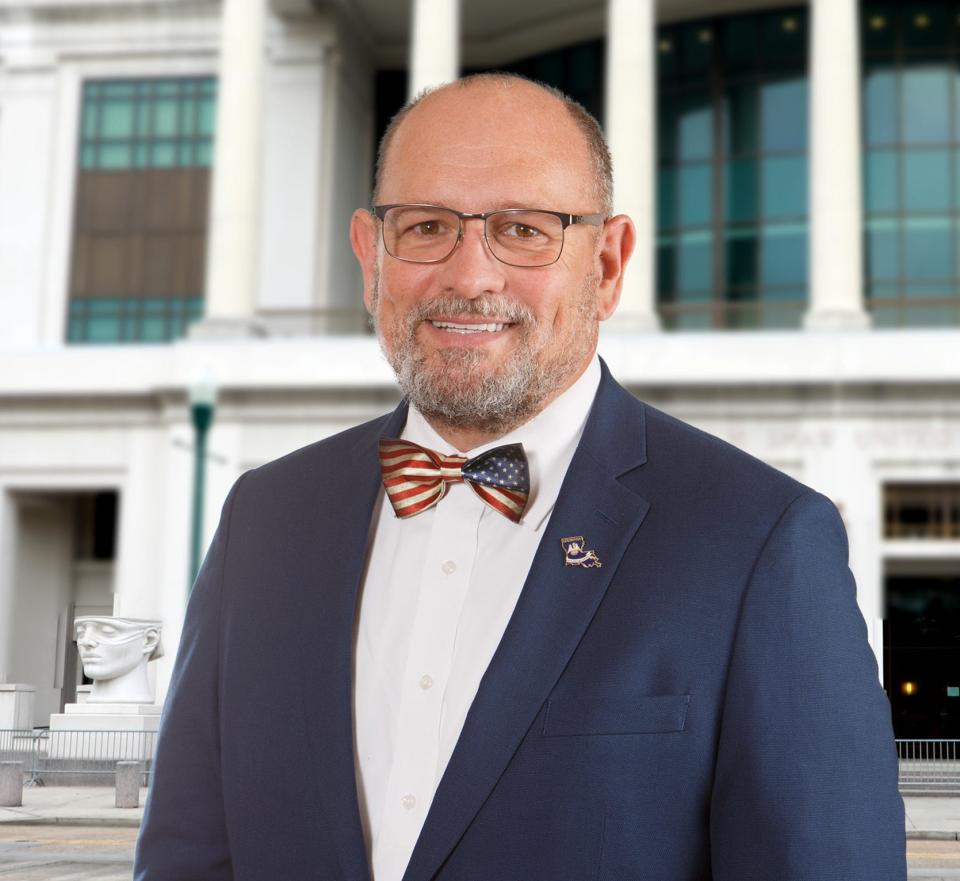Rankin County Sheriff's Trustee Program could be model for state's criminal justice reform
- Oops!Something went wrong.Please try again later.

Rankin County Sheriff, Bryan Bailey has one of the most successful non-violent offenders jail programs in the state, and state leaders are said it could serve as a model for other criminal justice programs in the state.
"My first year that I was elected in 2012 God opened my eyes," Bailey said during the policy summit recently with local, national and municipal officials discussing ways to better the city of Jackson through education, public safety and workforce development.
After reviewing the turn around rate for inmates Bailey created the Sheriff's Trustee Program for inmates to better prepare them for after their release from jail.
"The program is joined together with the district attorney, judge and the sheriff's office," Bailey said. "All non-violent offenders are sentenced to the program to serve 1 to 5 years in the county jail."
Bailey teamed up Hinds Community College through the Accelerate Recovery Program to provide financial literacy, GED and college courses for inmates to be prepared to become self sufficient after serving their jail time.
"Education is important not only to inmates in the program but the city as a whole," Bailey said. "About 50% of people in the Rankin County jail will come back to jail if we don't continue to provide them with the tools needed to thrive outside of jail."
Forest Thigpen, senior advisor for Empower Mississippi, a lobbying group that advocates for education issues, said jails are not just meant to punish inmates but to save them as well.
"The proper roll for government is to protect public safety," Thigpen said. "Locking up more people to bring down the crime rate isn't working."
Thigpen said that treating every criminal the same is an unjust solution
"We can't treat everyone that commits a crime as if they are a danger to society as well as some who are incarcerated," Thigpen said. "Let's give them what they need through reforms and try to move forward."
More: Mississippi Gov. Tate Reeves announces 3 key hires to help fight crime in the capital city

Alesha Judkins, state director of criminal justice reform for FWD.us, a bipartisan political organization that works for criminal justice reform, said improper sentencing can lead to possible long-term mental issues with inmates.
Judkins believes incarcerated people are more than just the worst thing they have ever done.
"When I first entered into this line of work people were being given really long sentences," Judkins said. "I've worked a lot with people who went in as kids and now are full-grown men that don't know how to function by themselves, which leads to mental breakdowns.
"So yes, going past reforms are necessary."

Scott Peyton, Mississippi and Louisiana director of Right on Crime, said 95% of people who go into prison come back out.
Peyton said serving as an adult probation and parole officer working with inmates who have served longer sentences can be difficult.
"The quick answer or solution is to provide hope," Peyton said. "Make no mistake when someone does something that is bad prisons are in place to rightfully serve them."
Gov. Tate Reeves also spoke at the summit about the workforce development.
"Education is just as important as workforce development to me," Reeves said. "The two go hand and hand."
Grant Callen, founder of Empower Mississippi said, "The summit is the solution for tackling Mississippi's biggest challenges so that everyone can rise simultaneously."
This article originally appeared on Mississippi Clarion Ledger: Mississippi leaders discuss criminal justice reform, education


